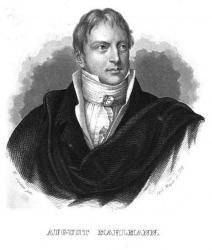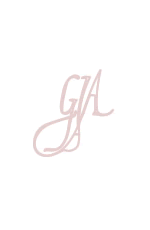- |
User Links
God Bless Our Native Land

God bless our native land! Firm may she ever stand
Author: Siegfried A. Mahlmann (1815); Translator (remaining lines): John Sullivan Dwight (1844); Translator (first 5 lines): Charles Timothy Brooks (c. 1833)Tune: AMERICA (Thesaurus Musicus)
Published in 665 hymnals
Printable scores: PDF, MusicXMLAudio files: MIDI, Recording
Representative Text
1 God bless our native land;
firm may she ever stand
thro' storm and night!
When the wild tempests rave,
Ruler of wind and wave,
do thou our country save
by thy great might.
2 For her our prayers shall rise
to God above the skies;
on whom we wait.
Thou who art ever nigh,
guarding with watchful eye,
to thee aloud we cry:
God save the state!
Source: Christian Worship: Hymnal #774
Author: Siegfried A. Mahlmann
 Siegfried August Mahlmann Germany 1771-1826. Born at Leipzig, Germany, he studied law at the University of Leipzig. He tutored a young nobleman and traveled with him around Europe. In 1799 he became a bookseller, writer, and editor. He bought the Junius bookshop in Leipzig in 1802. From 1806-16 he edited the journal Zeitung fur die elegante Welt (a fashionable publication), and from 1810-18 wrote for the Lipziger Zeitung newspaper. He was briefly imprisoned in 1813 by the French during the Napoleonic Wars in the fortress at Erfurt. He wrote a novel, short stories, poetry (published in 1825 and popular in his day), and a number of songs, still popular with German children. In his spare time he was a playright. His collected poems… Go to person page >
Siegfried August Mahlmann Germany 1771-1826. Born at Leipzig, Germany, he studied law at the University of Leipzig. He tutored a young nobleman and traveled with him around Europe. In 1799 he became a bookseller, writer, and editor. He bought the Junius bookshop in Leipzig in 1802. From 1806-16 he edited the journal Zeitung fur die elegante Welt (a fashionable publication), and from 1810-18 wrote for the Lipziger Zeitung newspaper. He was briefly imprisoned in 1813 by the French during the Napoleonic Wars in the fortress at Erfurt. He wrote a novel, short stories, poetry (published in 1825 and popular in his day), and a number of songs, still popular with German children. In his spare time he was a playright. His collected poems… Go to person page >Translator (remaining lines): John Sullivan Dwight
 John Sullivan Dwight, born, in Boston, May 13, 1813, was a virtuoso in music, and an enthusiastic student of the art and science of tonal harmony. He joined a Harvard musical club known as "The Pierian Sodality" while a student at the University, and after his graduation became a prolific writer on musical subjects. Six years of his life were passed in the "Brook Farm Community." He was best known by his serial magazine, Dwight's Journal of Music, which was continued from 1852 to 1881. His death occurred in 1893.
The Story of the Hymns and Tunes, Brown & Butterworth, 1906.… Go to person page >
John Sullivan Dwight, born, in Boston, May 13, 1813, was a virtuoso in music, and an enthusiastic student of the art and science of tonal harmony. He joined a Harvard musical club known as "The Pierian Sodality" while a student at the University, and after his graduation became a prolific writer on musical subjects. Six years of his life were passed in the "Brook Farm Community." He was best known by his serial magazine, Dwight's Journal of Music, which was continued from 1852 to 1881. His death occurred in 1893.
The Story of the Hymns and Tunes, Brown & Butterworth, 1906.… Go to person page >Translator (first 5 lines): Charles Timothy Brooks
 Brooks, Charles Timothy. An American Unitarian Minister, born at Salem, Mass., June 20, 1813, and graduated at Harvard, 1832, and the Divinity School, Cambridge, U.S., 1835. In that year he began his ministry at Nahant, subsequently preaching at Bangor and Augusta (Maine), Windsor (Vermont). In 1837 he became pastor of Newport, Rhode Island, and retained the same charge until 1871, when he resigned through ill-health. [Rev. F. M. Bird, M.A.]
-- John Julian, Dictionary of Hymnology (1907)… Go to person page >
Brooks, Charles Timothy. An American Unitarian Minister, born at Salem, Mass., June 20, 1813, and graduated at Harvard, 1832, and the Divinity School, Cambridge, U.S., 1835. In that year he began his ministry at Nahant, subsequently preaching at Bangor and Augusta (Maine), Windsor (Vermont). In 1837 he became pastor of Newport, Rhode Island, and retained the same charge until 1871, when he resigned through ill-health. [Rev. F. M. Bird, M.A.]
-- John Julian, Dictionary of Hymnology (1907)… Go to person page >Text Information
Related Texts
| First Line: | God bless our native land! Firm may she ever stand |
| Title: | God Bless Our Native Land |
| German Title: | Gott segne Sachserland |
| Author: | Siegfried A. Mahlmann (1815) |
| Translator (remaining lines): | John Sullivan Dwight (1844) |
| Translator (first 5 lines): | Charles Timothy Brooks (c. 1833) |
| Meter: | 6.6.4.6.6.6.4 |
| Language: | English |
| Copyright: | Public Domain |
Notes
God bless our native land. [National Hymn.] Several hymns opening with this first line are in common use. The basis of each is the English National Anthem, “God save the Queen." The most popular form is that which had its origin in America, about 1831, the English form, dating 1836, not being in very general use. The following details and texts are of some interest to hymnologists.
I. The American History and Texts.
i. The Rev. C. T. Brooks, an Unitarian minister, during the lime that he was studying at the Divinity School, Cambridge, U. S. A., 1832 to 1835, wrote the following, said to be a translation from the German:—
"God bless our native land!
Firm may she ever stand
Through storm and night!
When the wild tempests rave,
Ruler of wind and wave,
Father Eternal, save
Us by Thy might!
"Lo! our hearts' prayers arise Into the upper skies,
Regions of light! He Who hath heard each sigh,
Watches each weeping eye:
He is forever nigh,
Avenger of Right."
ii. The next form of this hymn is by the Rev. J, S. Dwight (p, 1560, ii.), and reads:—
"God bless our native land!
Firm may she ever stand
Through storm and night!
When the wild ternpests rave,
Ruler of wind and wave,
Do Thou our country save
By Thy great might!
“For her our prayers shall rise
To God above the skies:
On Him we wait.
Thou Who art ever nigh,
Guarding with watchful eye,
To Thee aloud we cry,
God save the State!"
The italics in the above indicate the alterations made in C. T. Brooks's text by J. S. Dwight. Putnam says (Songs of the Liberal Faith, 1874, p. 370) that this text was first introduced, it is supposed, into one of Lowell Mason's singing books." The American authorities date it 1844.
iii. The third form appeared in Hedge and Huntington's Unitarian Hymns for the Church of Christ, Boston, 1853, No. 463. In this st. i. and st. ii., lines 1-3 are from the second form above. The remaining Iines read:—
"Thou Who hast heard each sigh,
Watching each weeping eye,
Be Thou for ever nigh;—
God save the State."
iv. The fourth form appeared in the Unitarian Hymns of the Spirit, Boston, 1864, No. 251. In this st. i. is from No. ii. as above, st. ii. is altered therefrom, and st. iii. is new:—
St. ii.
"For her our prayers shall be,
Our fathers' God, to Thee,
On Thee we wait!
Be her walls Holiness;
Her rulers Righteousness;
Her officers be Peace;
God save the State!"
St. iii.
"Lord of all truth and right,
In Whom alone is might,
On Thee we call!
Give us prosperity;
Give us true liberty;
May all the oppressed go free;
God save us all! "
v. In addition to the foregoing there are a few variations to be found in some American collections. Practically, however, the above is a resume of the history of the American hymn.
II. The English History and Texts.
Under the date of Oct. 17, 1869, William Edward Hickson (d. 1870) then of Fairseat, Wrotham, Kent, wrote to Daniel Sedgwick, claiming that he was the author of "God bless our native land," which he had seen attributed to J. S. Dwight. Sedgwick pointed out that there were two distinct hymns with the same first line, one of which was certainly American in origin, and the other might possibly be by Mr. Hickson. Eventually this proved to be the case. Hickson's account of his hymn is" it was written by me in 1836 as a new national anthem," and "appeared in the ‘Second Class Tune Book,' No. 3, of the Singing Master." The Singing Master was published in 1836 (2nd ed. 1837). This hymn is in 4 stanzas of 8 lines. The opening stanza reads:—
”God bless our native land!
May heaven's protecting hand
Still guard our shore!
May peace her power extend,
Foe be transformed to friend,
And Britain's rights depend
On war no more."
The full text is in the 1880 Supplement to the Baptist Psalms & Hymns; the Methodist Free Church Hymns, 1889; the Congregational Church Hymnal, 1887, and other collections.
ii. In the Methodist Sunday School Hymn Book, 1879, No. 569, is an anonymous hymn which begins:—
"God bless our native land:
Her strength and glorv stand
Ever in Thee."
St. ii. is "God smile upon our land," and St. iii. "Through every changing scene."
iii. In the Congregational Church Hymnal, 1887, No. 654 opens with the same stanza as No. ii., but st. ii. is "God guard our sea-girt land," and st. iii. "God smile upon our land." This is in Christian Hymns, 1845.
The texts in these two hymn-books suggest a common original of four or more stanzas, but this original, if it exists, we have not seen.
--John Julian, Dictionary of Hymnology, Appendix, Part II (1907)


 My Starred Hymns
My Starred Hymns







